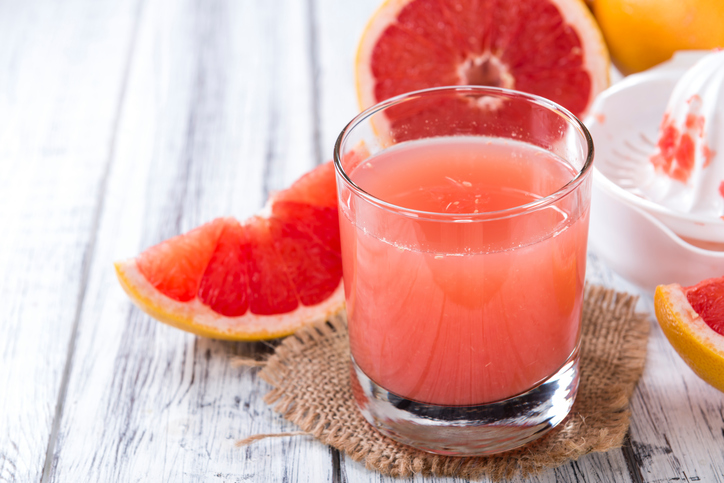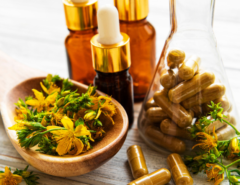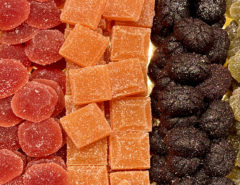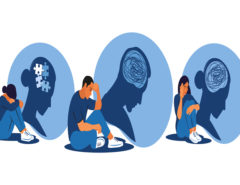As a pharmacy student, I remember telling a patient “You shouldn’t drink grapefruit juice or eat grapefruits with this medicine.” She was quick to reply, “Oh don’t worry, if I drink grapefruit juice, I drink it in the morning, but I take my medicines at night.”
This probably sounds reasonable to most people. Unfortunately, it’s not that simple. In this post we’ll describe a little bit about how grapefruit juice and medicine interact, how long the interaction might last, and the dangers of combining the two.
As many of you know, some medicines are taken once a day, and others are taken more often. As soon as you take medicine, the body uses enzymes to break it down. This prevents the medicine from building up in the body and causing harm. However, when the medicine is broken down, it no longer works to treat medical conditions. This is why medicines are often taken multiple times per day; it is a delicate balance between getting enough of the medicine to treat medical conditions and having too much of the medicine in the body. Grapefruit juice (and Seville orange juice) permanently disables the enzymes. This reduces our body’s ability to break down the medicine and it could build up. Other citrus products do not disable the enzymes.
How long will they interact?
So I’ve laid down the basic way medicines and grapefruit juice may interact. Now we will look at the original question. How long should I wait between drinking grapefruit juice and taking medicine? The short answer is it depends. How long grapefruit slows down the breaking down process varies from person to person and is difficult to predict. In some people, it can be up to 3 days! Since the interaction varies so much from person to person, it would be impossible for drug manufacturers to take grapefruit interactions into account when making medicine. It would also be impossible for the doctor to vary the dose of medicine you take to account for grapefruit. The safest solution is to avoid grapefruit.
What are the risks?
The risk of serious effects depends on the medicine being used, how much of the medicine you are taking, and your body’s ability to break down medicine. The most serious possible effect is death. Other effects are low blood pressure, low heart rate, and muscle breakdown.
The bottom line
Revisiting what my patient told me when I was a student, do you think she was correct? Was it okay for her to drink grapefruit juice in the morning and take her medications at night? The answer is quite simply, no. If your doctor or pharmacist tells you not to drink grapefruit juice or eat grapefruit while taking a medicine it is best to avoid grapefruit and grapefruit juice altogether.
While we do know how grapefruit interacts with medicines, we don’t know/cannot always predict how that interaction will affect each person. If you’re concerned that you are experiencing a reaction or side effects from your medicines, you can call the poison center 24/7 at 1-800-222-1222. We have pharmacists and nurses ready to answer your questions.
James Leonard, PharmD, DABAT
Specialist in Poison Information, Former Toxicology Fellow





Leave a Reply